What price a future without nuclear energy?
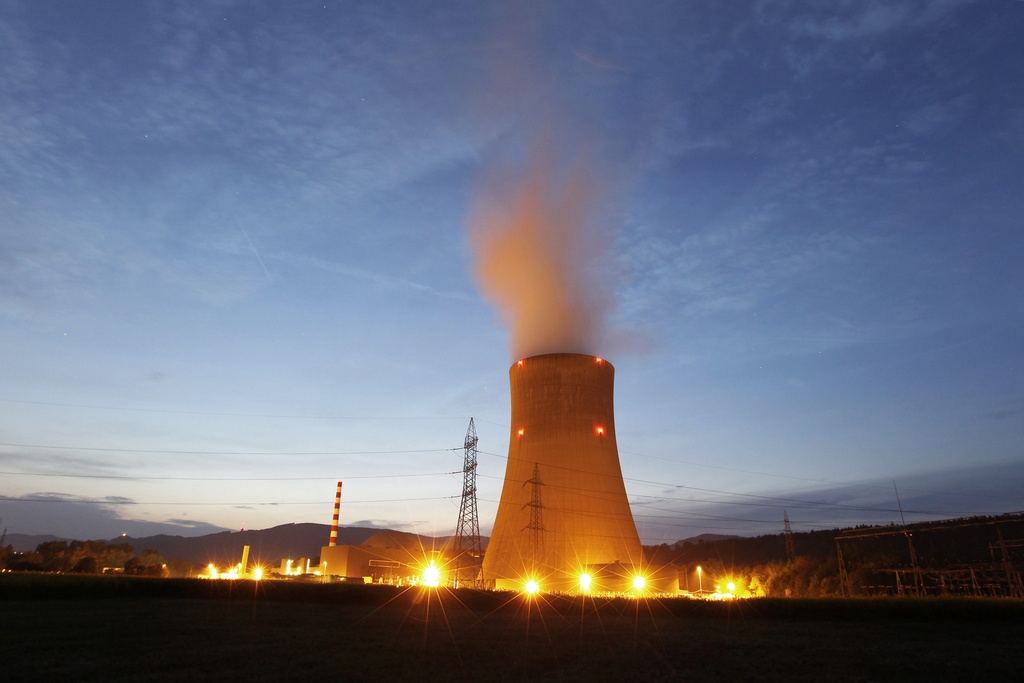
The idea of giving up nuclear power is gaining ground in the debate on energy policy, but business groups disagree about how to best meet Switzerland's energy needs.
Five francs a year – that would be the cost to Swiss families of quitting nuclear power, according to a coalition of environmental organisations.
The group says giving up atomic energy – which accounts for 40 per cent of Swiss electricity supply – and changing to a new system based on green energies would be “the best guarantee at the lowest prices”.
But business lobby group economiesuisse warns that a move away from nuclear power would negatively impact Swiss industry.
Last week WWF, Greenpeace, Pro Natura, the Swiss Association for Traffic and Environment and the Swiss Energy Foundation released a plan which put the cost of a kilowatt hour of green electricity at SFr0.1cent more per household.
By presenting concrete figures on the costs, the environmental organisations recognise that the discussion on energy policy – which will really heat up with the parliamentary debate in June – is not solely an ideological one. Financial and economic considerations are likely to make all the difference.
economiesuisse, the umbrella organisation for Swiss business, considers a premature abandonment of atomic energy “irresponsible”. Without valid alternatives, economiesuisse warns, abandoning the nuclear option will have serious consequences for Swiss industry.
Excessive dependence
Private industry uses 60 per cent of the electricity consumed in Switzerland. For economiesuisse it is therefore crucial that the country be able to guarantee a secure and independent energy supply.
“We are not against renewable energies, but we believe that, on their own, they will not be able to deal with the energy picture that is now shaping up,” Urs Näf, head of energy affairs at economiesuisse, told swissinfo.ch.
“The German government’s decision to close nuclear power plants and the European Union’s intention to carry out stress tests on plants are going to have repercussions on imports of electricity to Switzerland. How are we to supply ourselves during the winter, at a reasonable cost?”
Näf points out that since 2001 Switzerland has imported energy to satisfy its needs in winter.
Switzerland does not belong to the European Union, emphasises the leader of economiesuisse in French-speaking Switzerland, Cristina Gaggini, in an article in the Tribune de Genève.
“We will therefore not be the first served. Or else we will have to pay the higher price.”
A new future
The increase in the price of electricity – which Heinz Karrer, the CEO of energy utility AXPO, puts at 30% – will have a negative impact on transport and industry in Switzerland, says Urs Näf. Even clean-tech businesses will feel the effects.
“Swiss jobs and the competitiveness of the Swiss marketplace are going to take a hit.”
According to Hans Püttgen, director of the Energy Centre at the Federal Institute of Technology in Lausanne, and increase in the price of electricity can be sustained by households, but will be disastrous for businesses.
“Some will move abroad, others will have to shut down,” Püttgen said.
If the building of new nuclear power plants (a process which was suspended in the wake of the Fukushima disaster in Japan) is not given the green light, the only alternative will be to build plants using combined-cycle gas, according to economiesuisse.
But these will be plants emit CO2 and would contradict the objective of reducing emissions put forward by Parliament.
Economic prosperity
Economiesuisse’s views do not meet with universal agreement – not even in private industry itself.
A group of business executives in canton Bern are putting forward a proposal to give up nuclear power – not just for the sake of sustainable development, but for economic prosperity.
By investing in renewable energy sources and in energy efficiency, it would be possible to create about 60 per cent more jobs than if major power plants were built, argues New Energy Bern on its website.
“The new energies would be developed, produced and consumed in Switzerland,” explains Stefan Batzli of the Renewable Energy Agency (EEA).
Focusing on renewable energies, Batzli emphasises, will not cost more – on the contrary.
“Nuclear power is the most heavily subsidised technology in Switzerland. We should remember that ten-year programmes of promotion and research are not being factored in to the publicised cost of nuclear energy – not to mention all the costs associated with the risks and the disposal of nuclear waste,” Batzli said.
But how are we to cope with winter shortages?
“By importing wind-energy from the North Sea and solar energy from the South of Europe,” answers Batzli. “These energies, and not nuclear energy like today, should be used to feed the pump-turbine systems”.
The transition from nuclear energy to renewable sources will take about 20 years, Batzli concludes.
“Business and industry will have the time needed to come to grips with this ‘fourth industrial revolution’. Countries able to invest know-how and capital in this new market will not only be able to ensure their own supply, but will reap financial benefits”.
The umbrella organisation for Swiss business, economiesuisse, maintains that Switzerland needs to develop complete energy strategy for the country.
This will have to take several factors into account, including economic viability, security of supply, ecological criteria, and the attractiveness of the marketplace.
The nuclear option should therefore be left open or the country will need to build new, larger power plants using combined-cycle gas.
The environmental lobby groups maintain that it is possible for Switzerland to be nuclear-free by 2025.
Among the strategies proposed is a tax on electricity, tighter provisions about lighting, electrical appliances and engines, as well as a requirement to replace electrical heating plants.
As regards renewable energies, the environmental organisations support the development of cost-covering remuneration for feed-in to the electricity grid (CRF), which would encourage the use of solar energy. The CRF programme allows green energy producers to sell their electricity on the grid at a rate higher than the market price.
Not only the climate and nature, but also the country’s economy will benefit from this, the environmental groups maintain. Investments made in the sustainable supply sector will yield a greater return than those put into major power plants.
The Swiss government is to make a decision in principle about the future of nuclear energy during a special sitting scheduled for May 25.
Three options are currently being discussed by an inter-ministerial expert group: keeping the status quo with a possible replacement of the three oldest nuclear plants, not replacing existing plants at the end of their life-cycle, and abandoning nuclear power sooner rather than later.
Afterwards it will be up to Parliament to give its views on the topic. A special session is planned for June.
(Translated from Italian by Terence McNamee)

In compliance with the JTI standards
More: SWI swissinfo.ch certified by the Journalism Trust Initiative
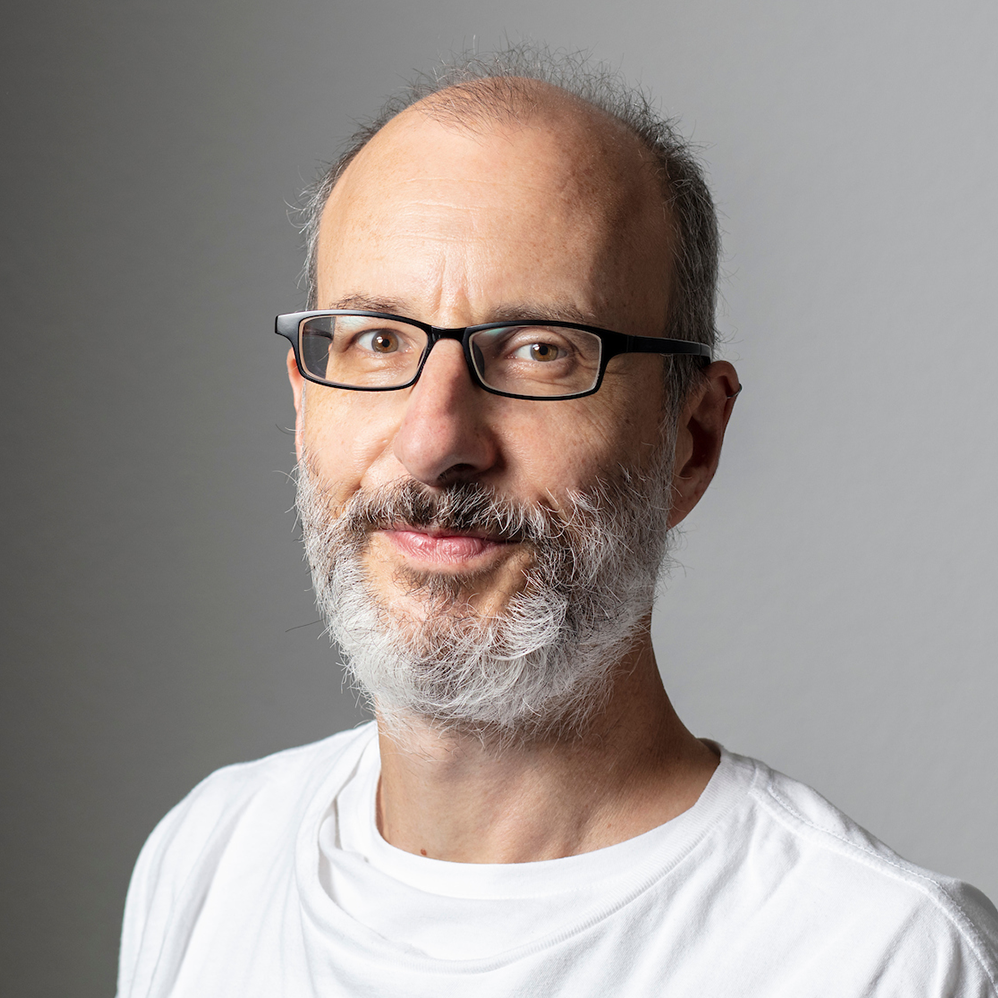
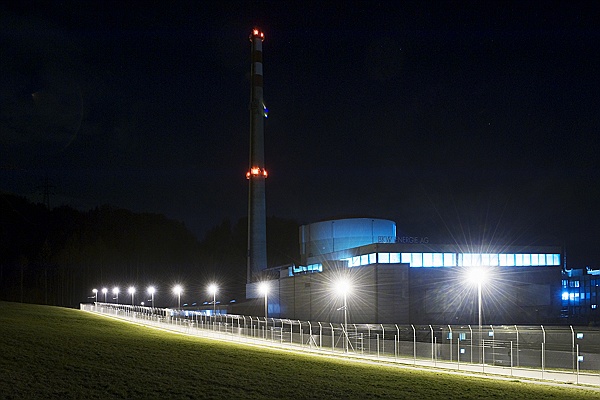
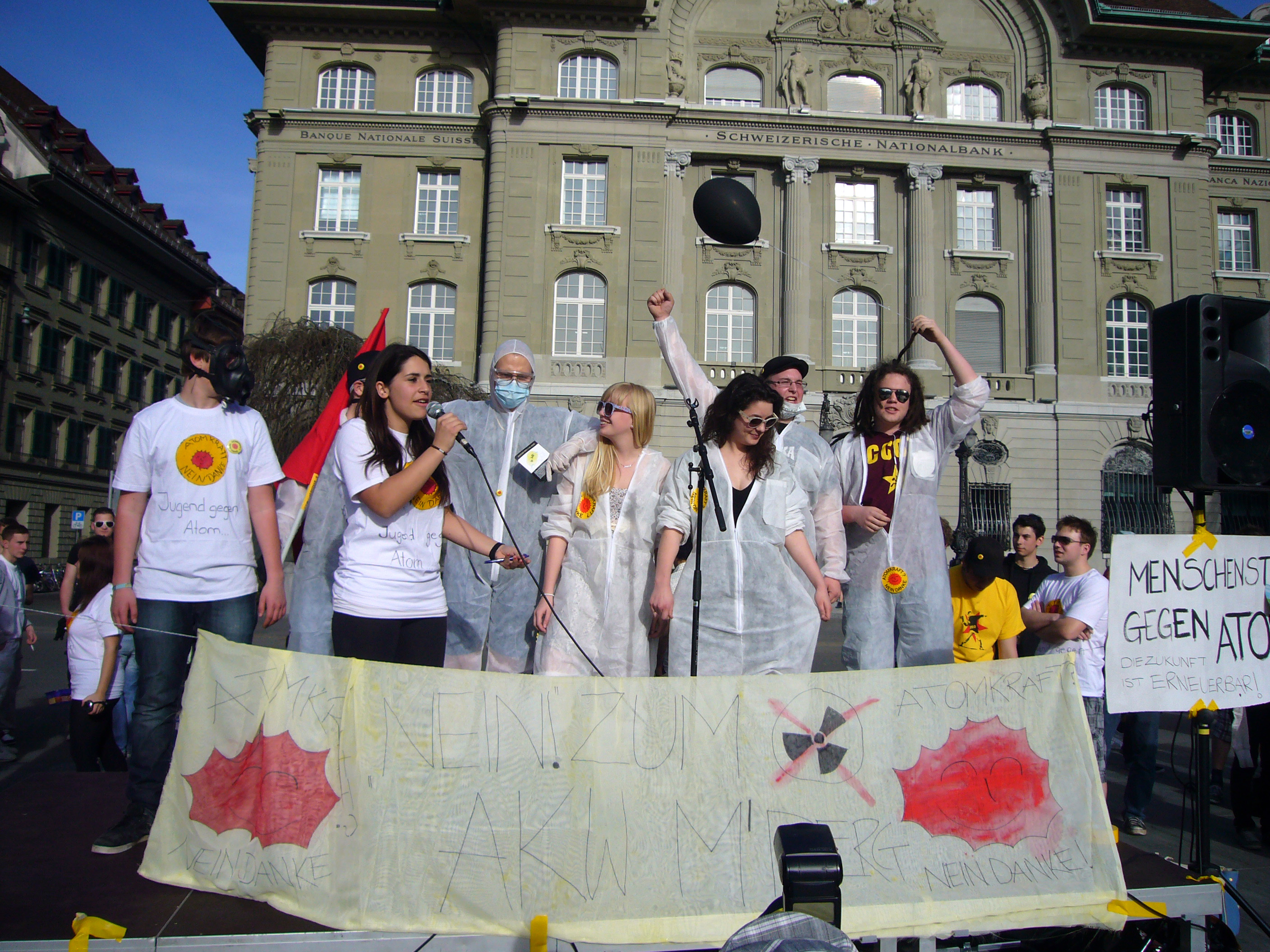
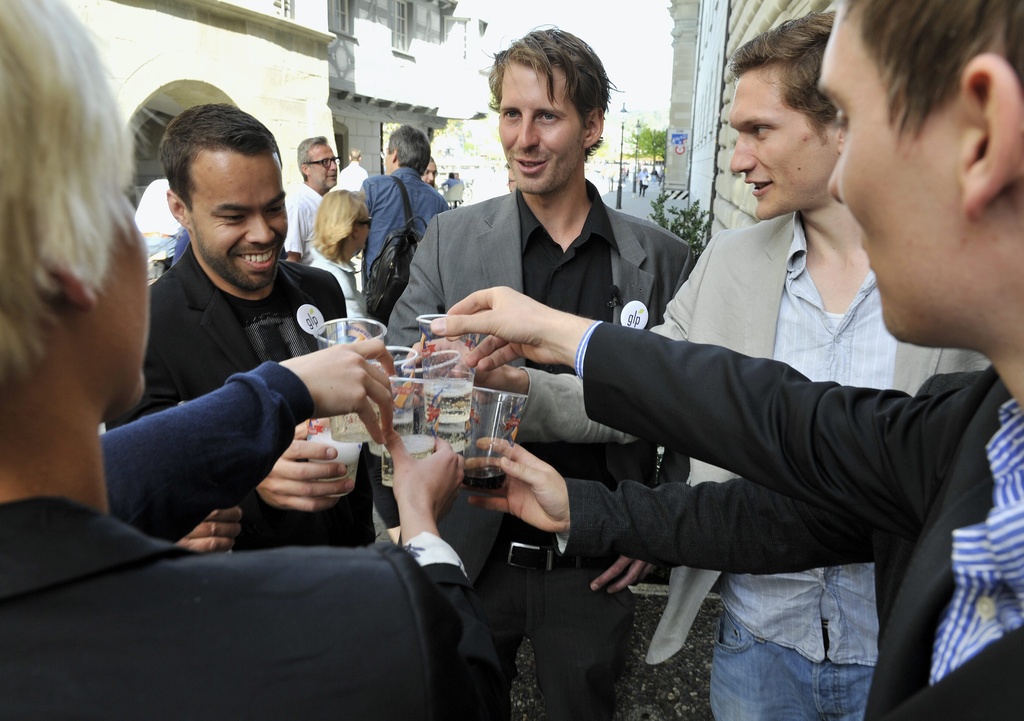
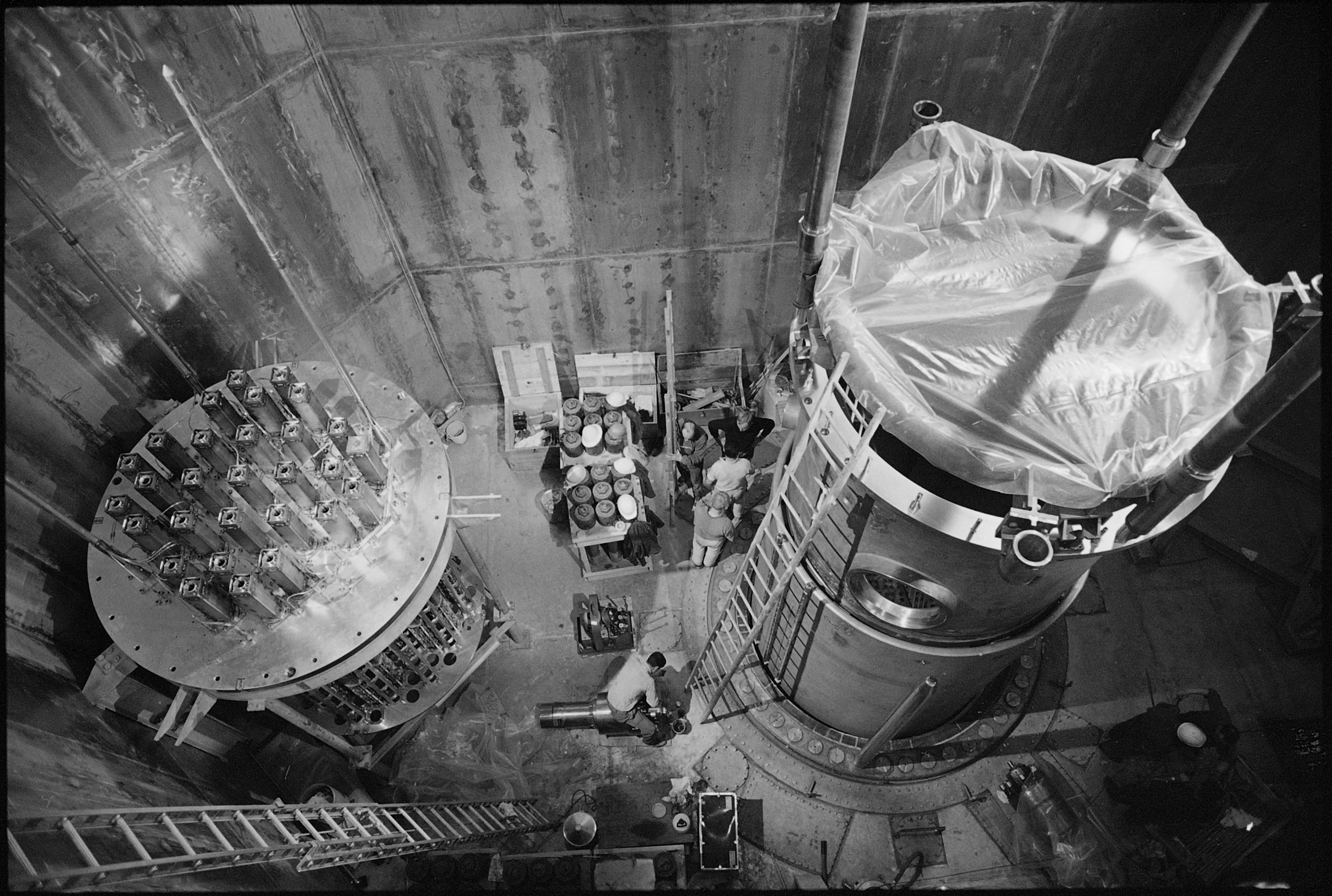
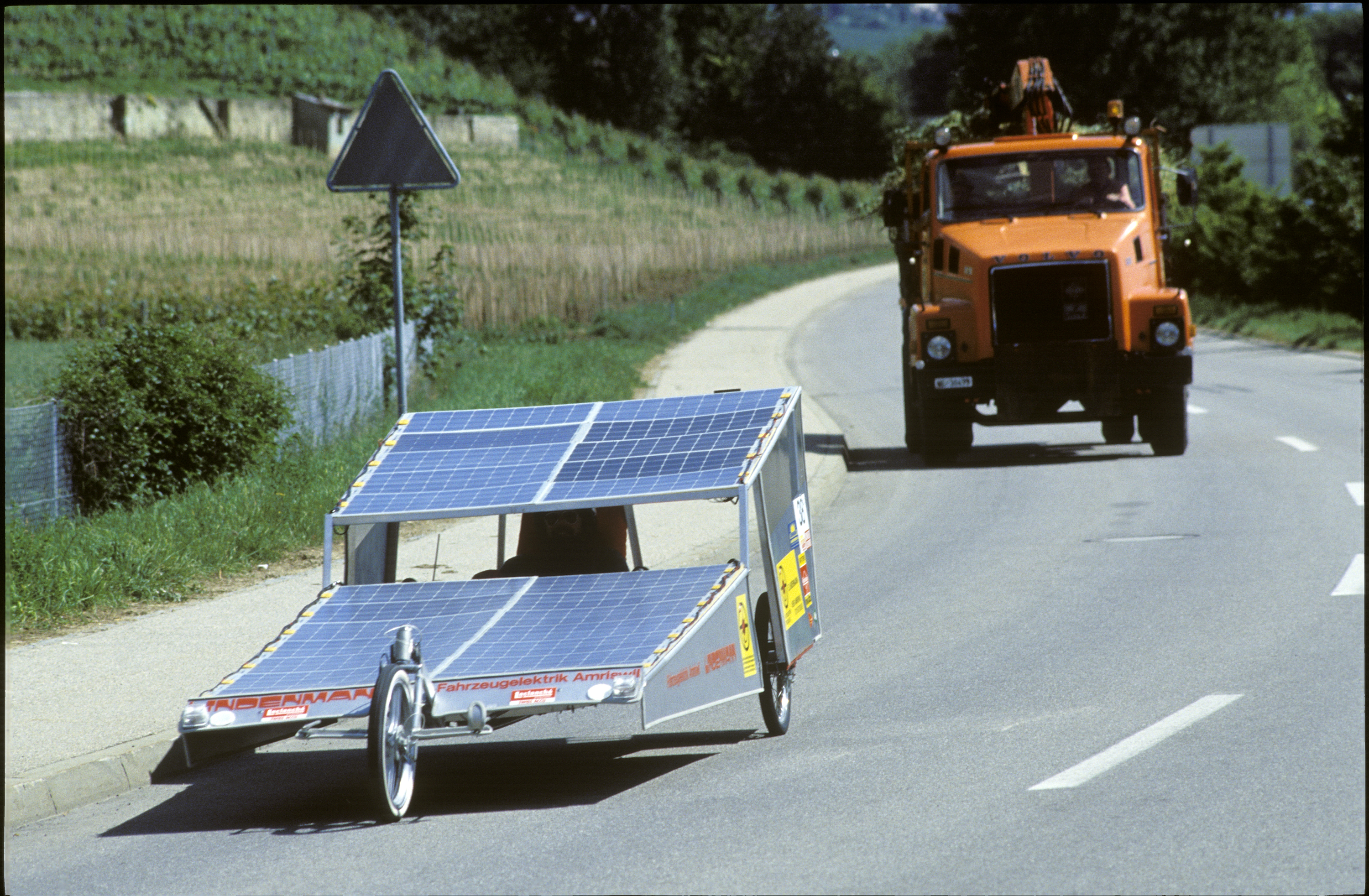
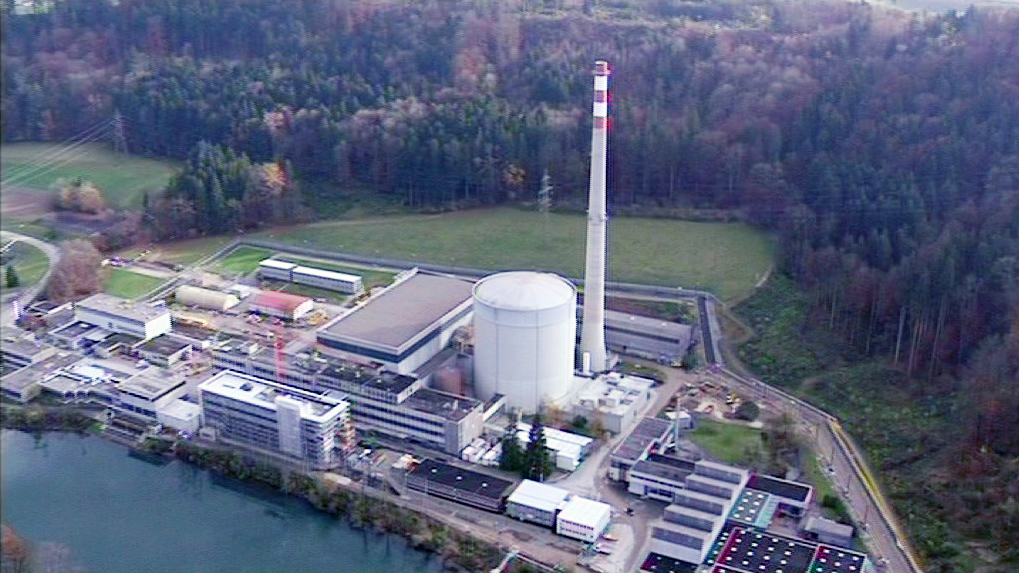
You can find an overview of ongoing debates with our journalists here. Please join us!
If you want to start a conversation about a topic raised in this article or want to report factual errors, email us at english@swissinfo.ch.